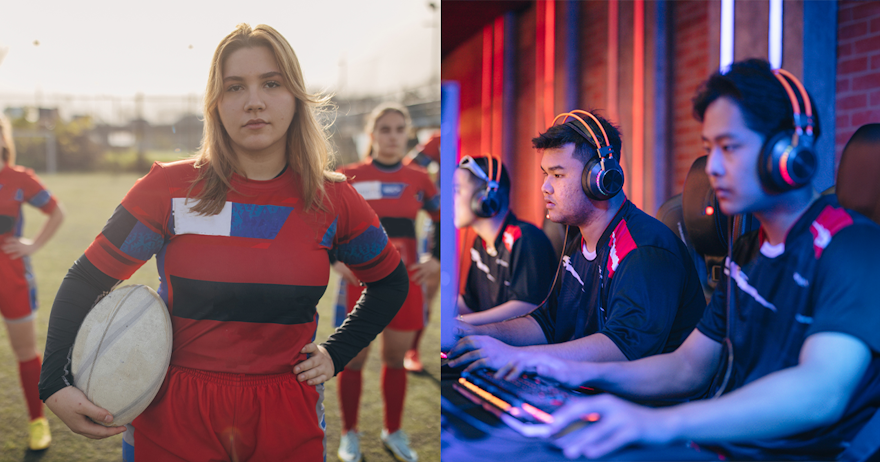Esports has evolved from a pastime to a global phenomenon with professional players, lucrative sponsorships, and millions of fans worldwide. Video gaming is being professionalized and since 2021 the top-earning esports player has earned anywhere from $6 million upwards. For talented players, esports is a career choice and young gamers aspire to be on the roster of top teams such as Team Liquid and Cloud 9. Although esports may seem worlds apart from traditional sports like soccer, basketball, or tennis, a closer look reveals striking similarities between the two. In this blog post, we'll explore these unexpected parallels and shed light on why esports training and competition should be taken just as seriously as traditional sports.
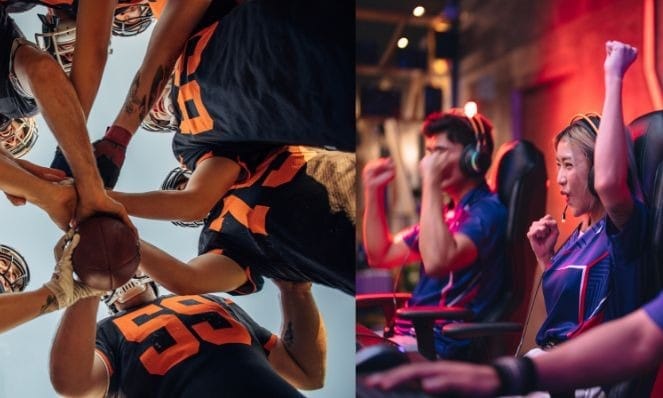
Skill Development.
Whether it's perfecting a jump shot on the basketball court or mastering a complex combo move in a competitive video game like Rocket League, the journey to greatness for both traditional sports athletes and esports players runs parallel. This demanding path is paved with countless hours of rigorous skill refinement, characterized by repetitive practice, the cultivation of muscle memory, and a profound comprehension of the game's intricate mechanics.
In the pursuit of mastery, both athletes must have an unwavering dedication and an unyielding commitment to ceaseless improvement. Paradoxically, while traditional sports training receives widespread acclaim, esports players often face unwarranted stigma because their practice frequently unfolds in isolation behind screens. Unfortunately, this has led to misconceptions that time spent gaming is merely a frivolous pursuit or, worse, an addiction. It's worth noting that nobody questions or restricts the hours dedicated by traditional athletes to improve in their chosen sport. At the ECA, we advocate for purposeful play, driven by the shared goal of continuous improvement and the recognition that esports deserve the same respect as traditional sports.
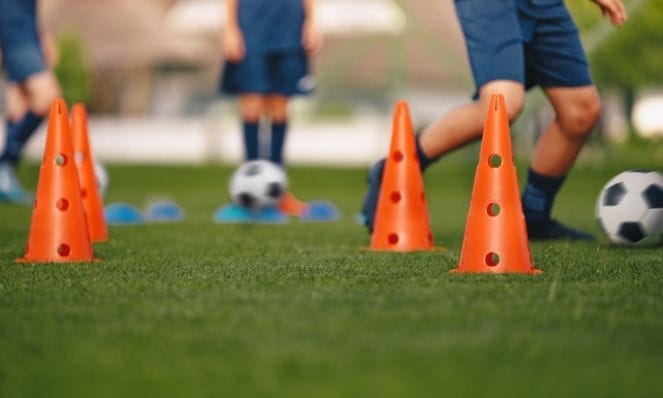
Teamwork and Communication.
Teamwork is a fundamental element that binds both esports and traditional sports. Just as soccer players must work together to score goals, esports teams need to coordinate their actions to secure victories. Athletes in traditional sports are expected to demonstrate respect for opponents and teammates, esports athletes are similarly encouraged to uphold these same values, ensuring that the spirit of competition remains fair and honorable. At the ECA, we believe that character development is as important as performance improvement, as it not only shapes individuals but also elevates the overall integrity of esports as a legitimate and respected competitive pursuit.
In traditional sports, effective communication on the field is crucial in ensuring that players are on the same page and can respond swiftly to changing game situations. Whether it's a quarterback signaling a pass play or a point guard changing out an offensive play, the ability to convey information clearly and efficiently is key. This is no different in esports, where quick and precise communication is important in securing a victory. Esports teams use voice chat and in-game messages to convey information, such as enemy positions, strategies, and coordination for complex maneuvers.
Analysis and Strategy.
Analyzing opponents, reviewing gameplay footage, and devising strategic plans are fundamental aspects of preparation in both esports and traditional sports. In the context of soccer, teams engage in extensive strategizing sessions aimed at exploiting competitors' weaknesses and leveraging their own strengths. In parallel, esports teams meticulously construct strategic game plans to secure an advantageous position in their matches. Whether it involves laying ingenious traps in Counter-Strike: Global Offense or choreographing a meticulously synchronized attack in Dota2, strategic acumen lies at the heart of both traditional and esports competition.
Traditional sports camps and esports academies such as Contender Esports provide a structured environment for young gamers to not only compete in tournaments but also to learn the intricacies of game analysis and strategy development.
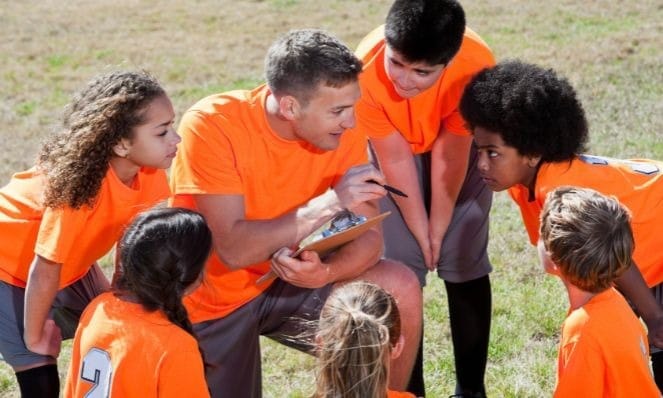
Physical and Mental Training.
Traditional athletes undergo rigorous physical training to enhance their endurance, strength, and agility. Similarly, esports athletes are increasingly recognizing the importance of physical fitness to maintain focus and mental clarity during long gaming sessions. Physical fitness in esports encompasses attributes such as a strong core, a robust cardiovascular system, agile fingers, and fine motor skills—all of which are crucial for precision and agility in gaming. A healthy lifestyle, proper nutrition, and regular exercise are vital for both groups to perform at their best.
Additionally, the mental aspect of training is equally significant in both traditional sports and esports. Athletes, whether on the physical field or behind a screen, face similar psychological challenges. Coping with stress, managing pressure, and maintaining a sharp mental edge are all required skills. To tackle these challenges, both traditional and esports athletes employ mental training techniques. These may include visualization exercises, mindfulness practices, and strategies for fostering a resilient and positive mindset.
Esports, in particular, present unique mental demands. The intensity of competitive gaming can lead to emotional highs and lows, requiring exceptional mental toughness and emotional resilience. We at the ECA recognize and emphasize the importance of mental well-being in esports training. We focus on constructive approaches to handling stress and discourage counterproductive behaviors, emphasizing that yelling or venting frustration is unlikely to yield positive results.
Professionalism and Competition.
Esports has undergone a transformative shift towards professionalism, closely mirroring the structured framework of traditional sports. Just as traditional athletes compete in organized leagues like the NBA or Premier League, esports players also compete in prestigious tournaments such as the League of Legends World Championship and The International (Dota 2), offering substantial prize money that rivals many traditional sports competitions. This shift has not only attracted top-tier talent but also garnered significant sponsorships and investments, propelling the industry's rapid growth.
Esports coaching has emerged as an important component of this professionalization, reflecting the importance of developing talent at all levels, starting with the grassroots. Teams employ coaches who specialize in strategy development, mental training, and physical conditioning, mirroring the coaching staff seen in traditional sports. This structured approach not only fosters individual player development but also contributes to the overall competitiveness and growth of esports as a legitimate and respected form of athletic competition on the global stage. Through our structured training programs and education of coaches, we hope to shape how the world approaches youth esports by making it viewed as an equally valuable pursuit as traditional youth sports.
Similar to sports camps, esports camps and/or academies provide young athletes with structured coaching and an environment where they can learn the finer nuances of their respective sports. Esports Academies such as NewMeta equip young gamers with skills and knowledge that can be applied to various aspects of life beyond the screen.
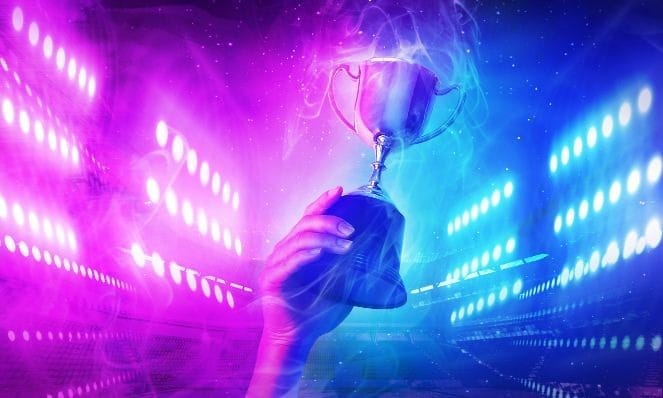
Striving for Excellence in the Physical and Virtual Arenas.
The similarities between esports and traditional sports are undeniable. Both require dedicated skill development, teamwork, physical and mental training, strategic analysis, and a commitment to professionalism and competition. As the esports industry continues to grow, it's important to recognize that esports athletes are not so different from their counterparts in traditional sports. They deserve the same respect, recognition, and support for their commitment to their craft. Whether on the virtual battlefield or the physical arena, the pursuit of excellence remains the driving force behind athletes in both domains.
